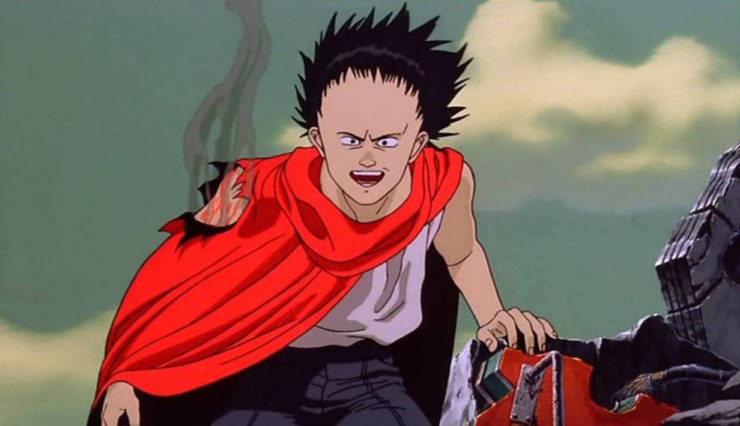The world, we’re always told, will last longer than we will ever do. Once the last human takes their final breath, Earth will still continue to flourish for millennia more, until the sun dies out millions of years from now. While life is fleeting, existence can take eons.
But sometimes nature isn’t willing to wait that long. Sometimes nature looks at us as how we sometimes act: as parasites that drain resources and contribute nothing back to the world, compromising its ability to endure longer. While real-life nature doesn’t possess the actual sentience to try and wipe us from the planet, it can still feel that way sometimes. But that’s what fiction is for. There’s a lot of books that posit the what-ifs of a nature that is actively trying to kill us, and these are five of my favorites.
The Southern Reach trilogy by Jeff VanderMeer
An easy favorite, starting with the first book in the series, Annihilation. No one knows how the strange flora and fauna have come to claim the lands that is now known as Area X, only that the people who go on expeditions to study them never come back the same. In many instances, they don’t came back at all. A young unnamed biologist joins the twelfth expedition to find out the circumstances surrounding her husband’s death. The latter had joined the group before hers, only to show up in their kitchen without any recollection of how he’d gotten back, eventually dying of cancer along with his fellow expedition members. But as she explores Area X and watches the same strangeness overtake her fellow scientists while the hostile terrain stalks and attacks them, she realizes that there is an even worse fate waiting for them all there. What I adore the most about the series is that there’s no clear reason why the strange alien environment had started to manifest in Area X – it’s simply there, with no motivation other than to transform everything around it into something just as unnatural as itself.
Buy the Book
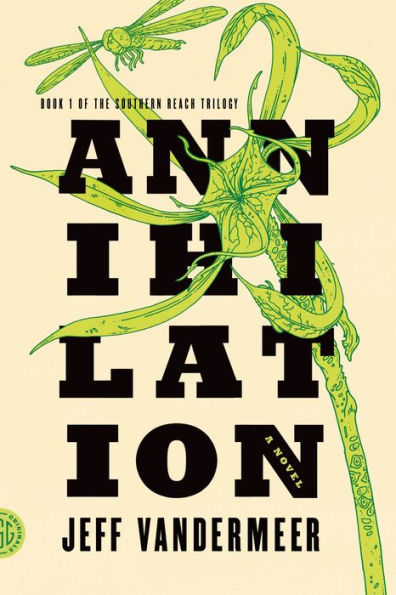

Annihilation
Hothouse by Brian W. Aldiss
When the novel begins, the worse has already happened (at least, by contemporary standards); humans have changed, both physically and physiologically. Their world is slowly dying, and they are seeking out ways to survive this catastrophe, including escaping into space. All of the protagonists described in the novel are unrecognizable to readers as human, though with similar motivations to staying alive. The sun has expanded to fill the sky, and plants have evolved their own nervous systems, mimicking human physical features such as eyes and acquiring a taste for meat and flesh. The vegetable kingdom has mutated into a parasitical species that’s succeeded in wiping out other animals and endangering what’s left of humankind, which is not the kind of story you usually see in post-apocalyptic novels – which is probably why the premise sounds so terrifying. I’d come in to the book assuming that the strange beings were supporting characters and that the humans would show up soon, then soon realized that the strange beings were the humans!
Buy the Book
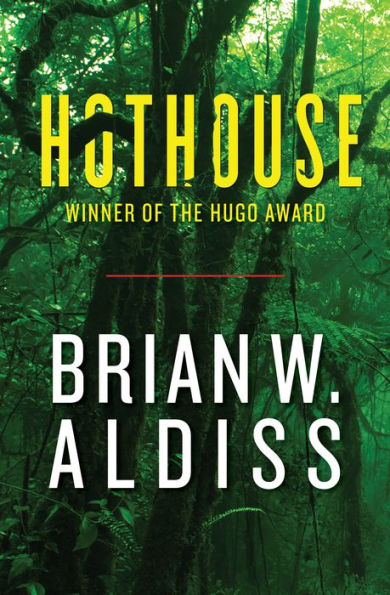

Hothouse
Akira
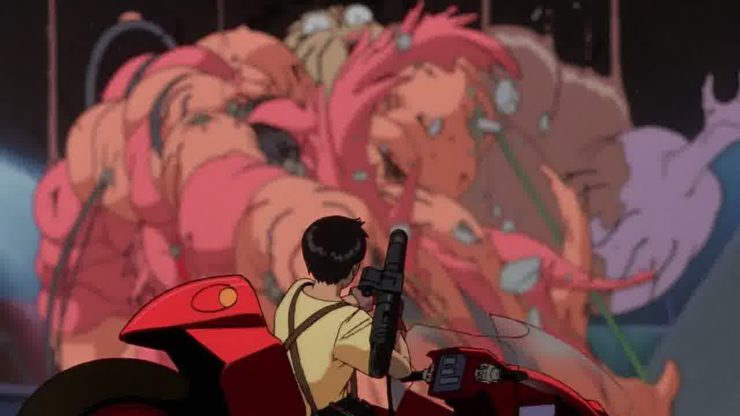
A strange singularity has hit Tokyo, devastating it completely. Now a new city has risen in its place, and the people must deal with the rise of powerful espers, who have been experimented on by the Japanese government in the hopes of using them to stop the next attack. One of them is the very powerful but very volatile Tetsuo, who causes mayhem and death when he escapes government custody. Akira is an extremely cynical look at an already dystopian story where, in the process of creating a solution to combat the singularity that threatens all life on earth, humans wind up making things worse and causing most of the destruction themselves. Akira is the kind of animation that you soon quickly realize is not for kids, despite having watched it as a kid, but has the weird kind of gritty anti-hero that I’ve always enjoyed.
Neon Genesis Evangelion
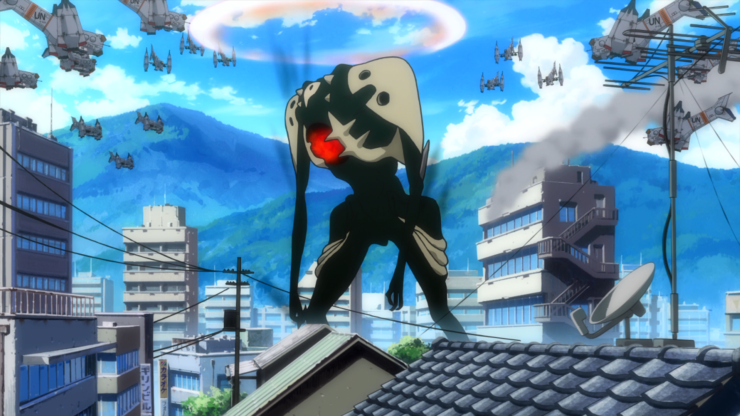
No one knows why the Angels fell to earth, only that when the first Angel came, it had devastated the world and caused the extinction of the dinosaurs. Now the rest of these strange Angels are arriving, determined to finish what their earlier brethren had started. And since this is a Japanese manga, of course the only way to stop their attack and prevent the end of life as we know it is by creating special robots called Evangelions, which are partly mechanical mecha derived / patterned after the first Angel’s remains, and also bio-weapons hooked up to their pilots’ nervous system, generating physical forcefields (called AT fields) that repel Angels. It’s just as strange and as wonderful as it sounds; the series revolves around one of the pilots named Shinji Ikari, who has to contend with his parents’ roles in the creation of these Evangelions while struggling to live a normal life as a rather emo teenager. The series deal with issues of mortality and loneliness, and struggles to answer whether or not life has meaning. Despite all the philosophical questions that make up the series though, there’s no clear reason why the Angels have come, or why they’ve been sent seemingly to rid the world of all life. But it does hint at humanity as being a failed experiment, and that starting over – albeit in the worst, genocidal way possible – is the only acceptable cure. Evangelion was the anime series of my childhood, especially since I was roughly the same age as Shinji and very susceptible to the emo teenage angst he exemplified.
The Word For World is Forest by Ursula le Guin
While not explicitly about an environment coming to wage war against humans, it does talk about the penchant for humans to destroy everything around them, which in turn gives rise to ‘nature’, this time in the form of Selver and his race of previously peaceful Athsheans, who only learn to kill in retaliation, forever changing them. Captain Davidson serves as the evil villain of the book, one who is willing to murder the Athsheans partly for his ego (his rage at having to be demoted and injured when Selver attacks him for raping and killing the latter’s wife) and also for his inability to let go of the profits and convenience that come with exploiting a gentler species. It was the first book I’d ever read were humans were the ones explicitly depicted as the villains, introducing me to the idea of trope subversions that I would wind up enjoying and incorporating in my own books.
Buy the Book
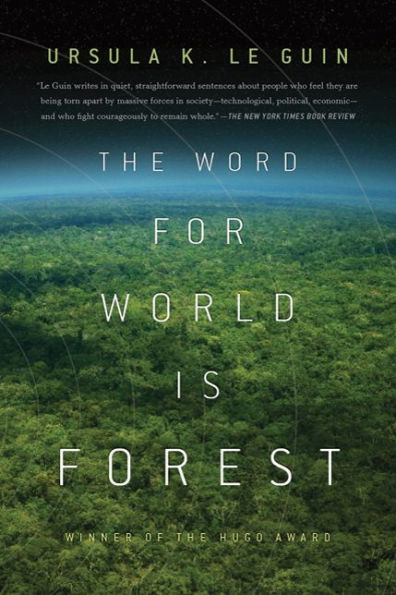

The World for World Is Forest
Raised in Manila, Philippines, Rin Chupeco has written obscure manuals for complicated computer programs, talked people out of their money at event shows, and done many other terrible things. She now writes about ghosts and fantastic worlds but is still sometimes mistaken for a revenant. She is the author of The Bone Witch series, The Suffering, and The Girl from the Well. Her new novel, The Never Tilting World, is now available from HarperTeen.










